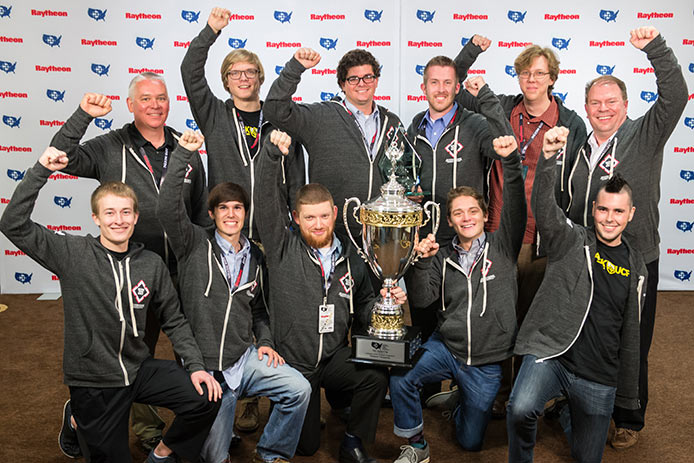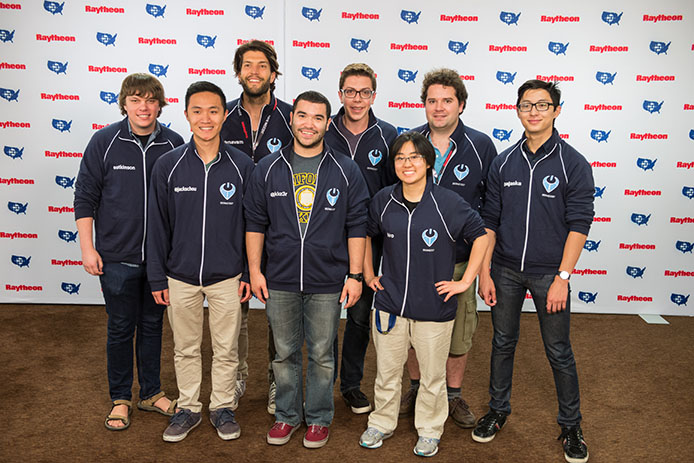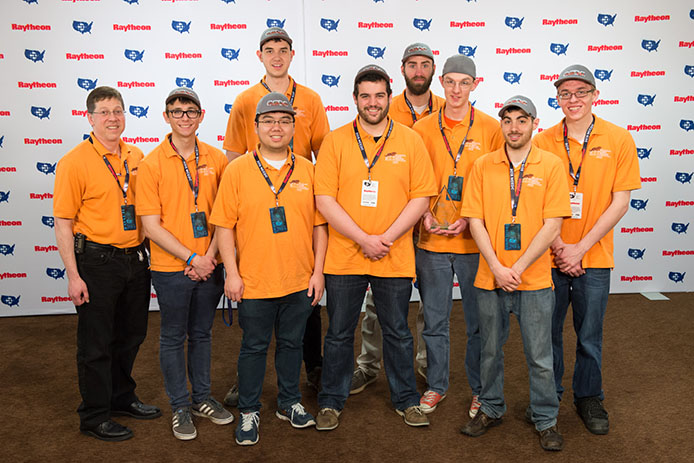UNIVERSITY OF CENTRAL FLORIDA CONTINUES REIGN AS COLLEGE CYBER CHAMPS
(Originally posted on Raytheon.com) Although the University of Central Florida kept its strategy under wraps before the championship, it was no surprise when it repeated in winning the nation's most prestigious collegiate data defense competition. With five of its eight team members returning from last year’s winning squad, the UCF Knights were the odds-on favorite.Members of the "Blue Team" from the University of Central Florida were crowned champions for the second year in a row at the 2015 National Collegiate Cyber Defense Competition, held in partnership with Raytheon.The win at the finals in San Antonio, Texas earned them more than bragging rights: Raytheon offered an internship to each student on the team and will bring them to Washington D.C. later this summer to tour some of the nation’s top research and national security cyber sites.After winning last year’s championship, the team members didn’t spend the flight home to Orlando celebrating, said coach Tom Nedorost; instead, they compared notes on how not to make the same mistakes in this year’s competition.“They became a very tight-knit. cohesive group, some taking the same courses together and others even rooming together,” Nedorost said. “When you get that close, you quickly learn your teammates’ strengths and weaknesses. During this year's championship, they were finishing each other's sentences. Sometimes they didn't even have to speak to act, like they were reading each other's minds."According to Nedorost, practice made perfect, calling it one of the keys to their victory. The team trained three days a week, four hours at a time, during the entire spring semester. While each of the eight students specialized in different cyber disciplines, the team studied each other's specialties so they could back each other up in a crisis.UCF beat the second-place Bears of the University of California, Berkeley, and bested the third-place Tigers of the Rochester Institute of Technology, New York.About 200 teams from universities and colleges across the United States competed in ten regional events to determine who would go to the April 24-26 finals in San Antonio.The 10 regional champions were:
- University of Alaska Fairbanks, At Large Regional CCDC Winner
- University of Maryland, Baltimore County, Mid-Atlantic Regional Winner
- DePaul University, Mid-West Regional Winner
- University of Nebraska at Kearney, North Central Regional Winner
- Rochester Institute of Technology, Northeast Regional Winner
- ITT Tech Boise, Pacific Rim Regional Winner
- Southern Utah University, Rocky Mountain Regional Winner
- University of Central Florida, Southeast Regional Winner
- University of Texas at San Antonio, Southwest Regional Winner
- University of California, Berkeley, Western Regional CCDC Winner
Date: Tuesday, April 28, 2015



